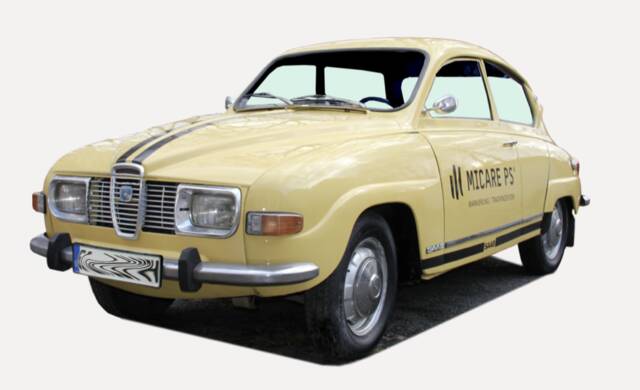Saab 96 classic cars for sale
The Saab 96 stands as a unique piece of automotive history, combining aerodynamic Scandinavian design, robust engineering and rallying pedigree. Built between 1960 and 1980, this two-door fastback defined practicality, reliability, and spirited performance—making it a sought-after classic among enthusiasts who value originality and technical sophistication.
Search results
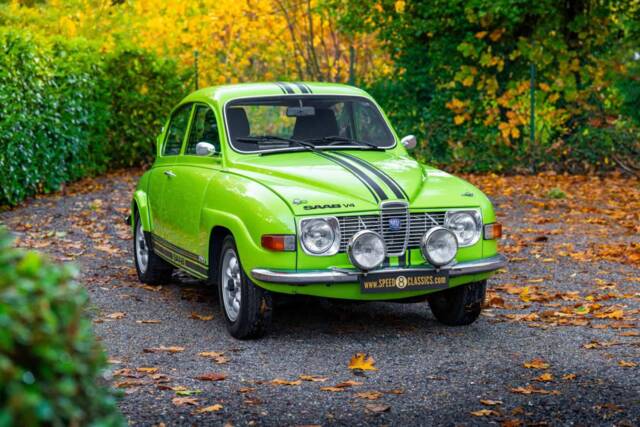
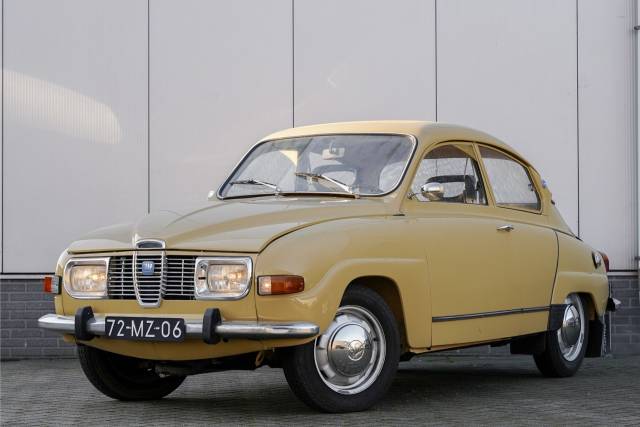
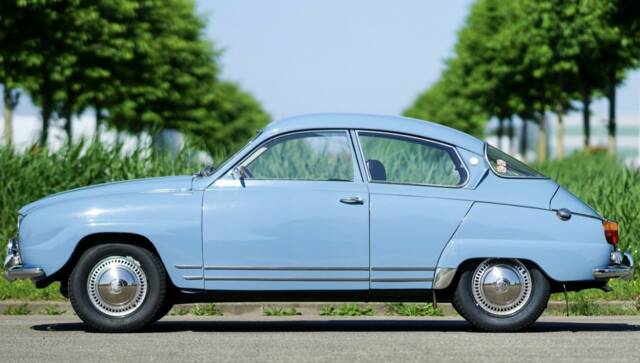
1967 | Saab 96
MONTE CARLO 841 CC 2-TAKT 57 PK
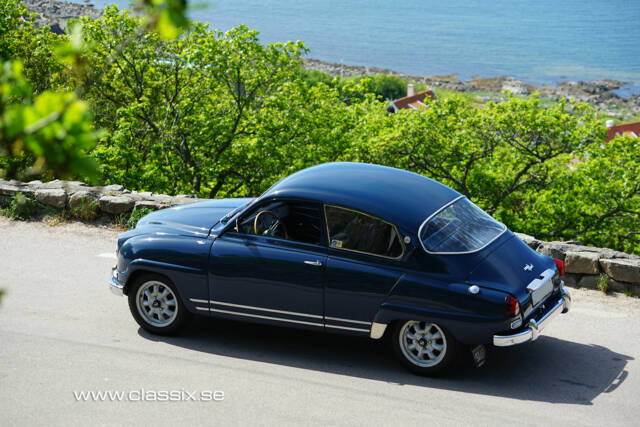
1963 | Saab 96 Sport
At Techno Classica Essen
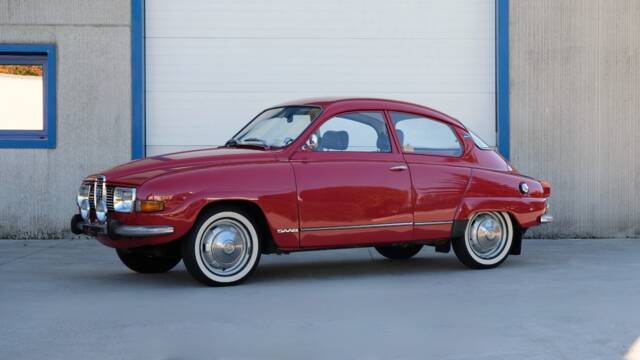
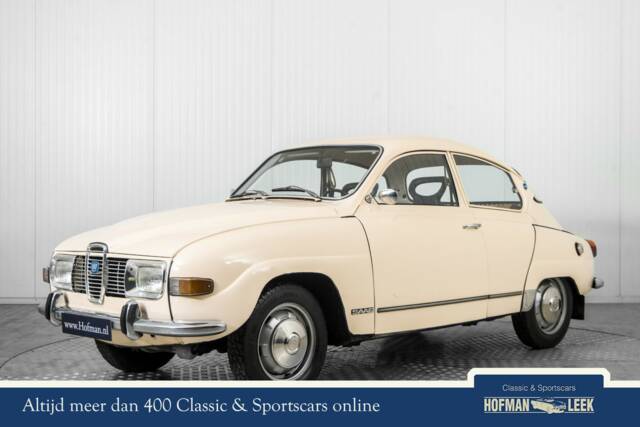
1971 | Saab 96 V4
Saab 96 L V4
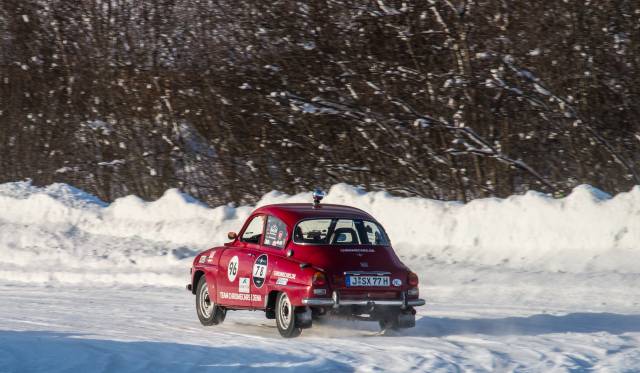
1969 | Saab 96 V4
GP Ice Race und Monte Carlo RAlly Teilnehmer
Saab 96 listing references from Classic Trader
Below you will find listings related to your search that are no longer available on Classic Trader. Use this information to gain insight into availability, value trends, and current pricing for a "Saab 96" to make a more informed purchasing decision.
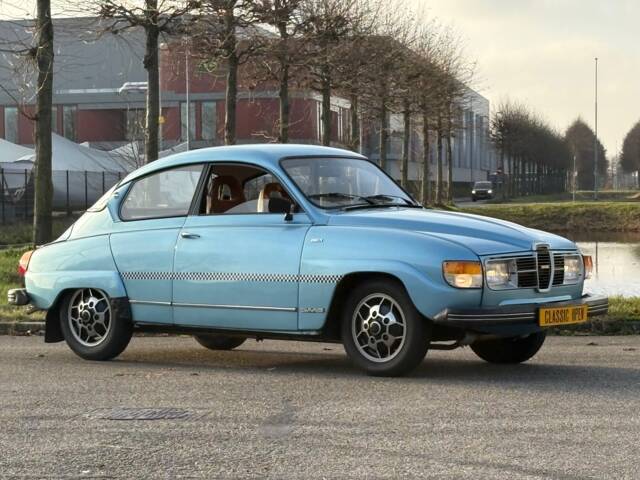
1979 | Saab 96 GL V4
Limited Edition
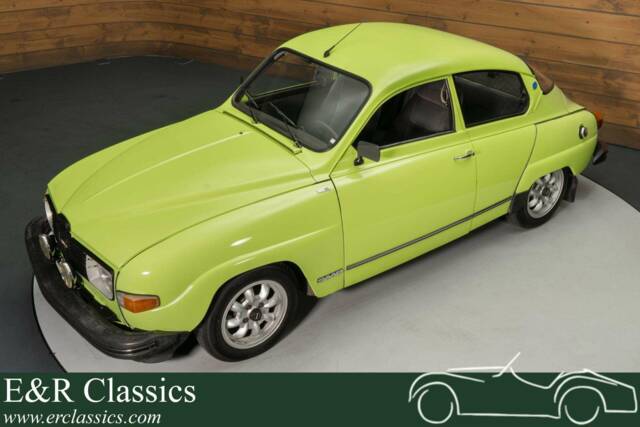
1979 | Saab 96 GL V4
Saab 96 GL Special Limited Edition | Nr 56 van 150 | 1979
1973 | Saab 96 V4
Gewinn aus Oldtimerspendenaktion 2022
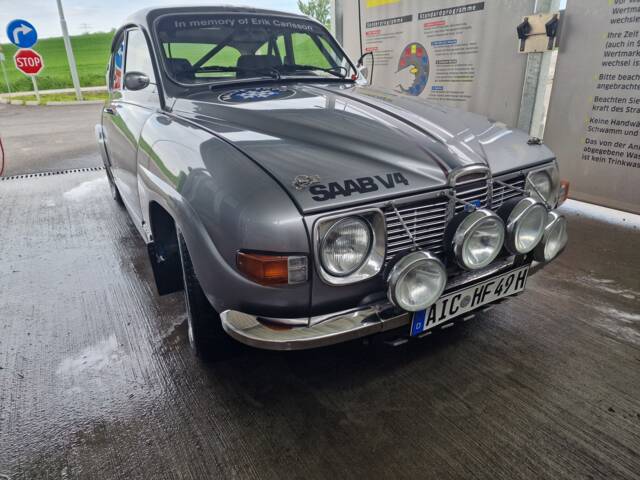
1975 | Saab 96 GL V4
SweedSpeed Motor 150PS totalrestauriert
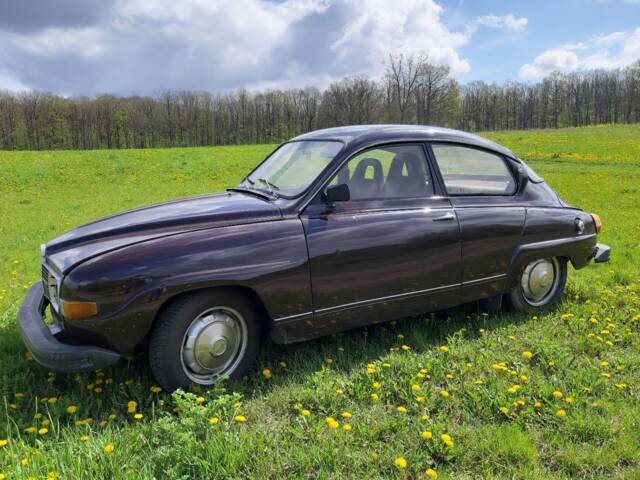
1979 | Saab 96 GL V4
Sog. Amerika-Ausführung
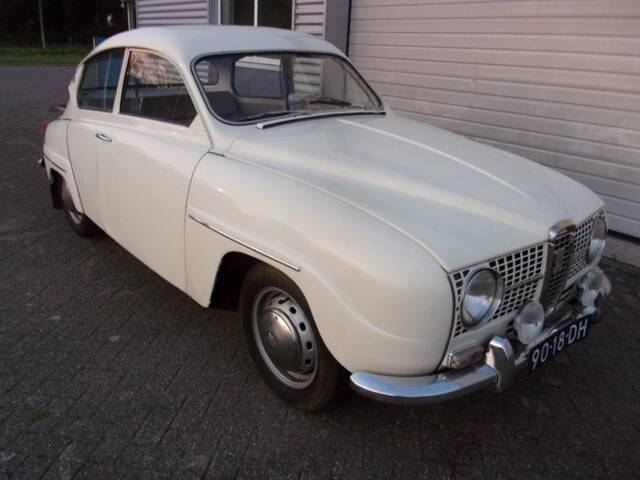
1967 | Saab 96
Saab - 96 - NO RESERVE - 1967
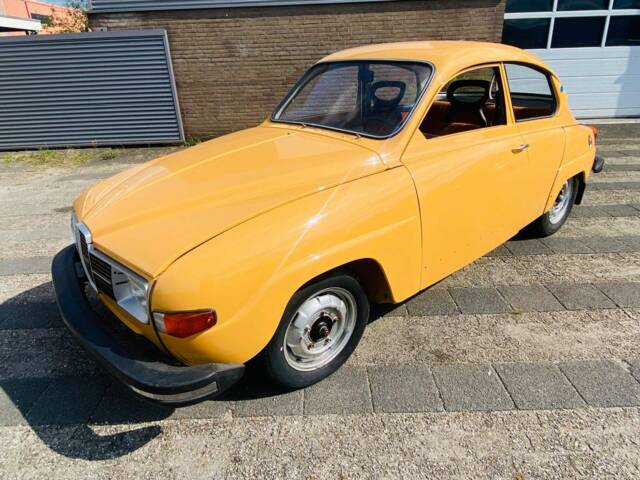
1975 | Saab 96 V4
Saab 96 1975 L V4 Compleet gerestaureerd
Saab 96 Classic Cars: Prices & Market Values
The market value of Saab 96 classic cars is primarily determined by the specific manufacturer code and variant, as well as technical condition, originality and mileage. Additional factors include rarity, history and documentation. A well-maintained, largely original vehicle with low, verifiable mileage and complete history including appraisals and documentation typically achieves significantly higher prices than a comparable vehicle with deferred maintenance, many modifications or unclear provenance.
Saab 96: Market Prices & Value Trends
Based on sales data from the Classic Trader marketplace, the Saab 96 market in Europe has been broadly stable to gently firming over the period from early 2021 to January 2026, with prices mainly driven by model type, originality and restoration quality. Most mainstream Saab 96 V4 and 96 GL V4 cars from the early 1970s to late 1970s cluster in a realistic band of roughly €7,000 to €17,000, reflecting usable classics through to well-presented, road-ready examples seen frequently in Dutch and German adverts. Below this, a handful of very low-priced cars (around €2,500–€5,500) look like condition-led outliers, while the strongest prices are typically reserved for earlier two-stroke era cars and “Sport” variants from the 1960s, where asking levels commonly sit around €18,000 to €36,000 and can exceed that for standout examples. For buyers, this points to a mature, enthusiast-led market: values appear supported by the 96’s rally heritage, distinctive design and shrinking supply of genuinely good cars, rather than sudden speculative spikes.
History of the Saab 96
Launched in 1960 as the successor to the Saab 93, the Saab 96 continued the Swedish brand’s reputation for durable engineering and distinctive design. While it retained many visual cues of its predecessor, subtle updates, especially to the rear glass area and lighting, gave the 96 a more modern and functional appearance. Throughout its 20-year manufacturing span, the Saab 96 underwent updates that improved its performance and comfort, while maintaining a strong connection to Saab’s aircraft-influenced design philosophy. The aerodynamic body and practical hatchback form were complemented by a robust technical setup, earning the 96 a loyal following in both everyday use and competitive rallying.
Model Series Evolution
The Saab 96 replaced the Saab 93 at the beginning of the 1960s. Early versions were powered by a three-cylinder, two-stroke engine carried over from the 93, a setup that prioritised simplicity and durability. From 1967, however, the 96 transitioned to a more potent V4 four-stroke engine sourced from the Ford Taunus, marking a significant upgrade in drivability and reliability. The model’s physical changes over time included an extended front end from 1965, larger windscreen and rear windows post-1968, and improved safety glass. The versatile design language persisted until production ceased in 1980, by which point the Saab 96 had outlived many rivals and solidified its reputation for rugged engineering.
Highlights and Key Features of the Saab 96
Few cars from the Scandinavian region combine everyday practicality with motorsport success quite like the Saab 96. Distinct technical features—such as the column-mounted gear selector, an advanced freewheel mechanism, and front-wheel drive—were matched by innovations in body structure like the aerodynamic fastback and a roomy boot. The car’s rallying record is outstanding, with names like Erik Carlsson and Stig Blomqvist claiming victories in international competition. Interior and comfort details, from heated seats (on some models) to robust original radio units, helped the 96 stand apart. The classic ‘soccer ball’ alloy wheels and unique chromed details on limited editions further distinguish rare versions on the market.
Technical Data
Special Editions and Collectible Models
Among the most coveted versions are the 'Anniversary' and 'Limited Edition' Saab 96s. These often feature special serial number plaques, bespoke interior options (such as sports seats, unique upholstery, and tinted glass), and exclusive exterior colours like Ultramarine Metallic. Original 'soccer ball' alloy wheels and double chrome trim add further distinction. Rarer still are well-kept early two-stroke models and factory-built right-hand-drive examples, which also attract collectors.
Common Weak Spots and Known Issues
Although built to last, the Saab 96’s longevity does depend on proper care. Buyers should watch for rust in the sills and underbody—common on Swedish classics—especially in cars used in harsh winter climates. While mechanical parts like the V4 engine and four-speed gearbox are robust and replacements readily available, seals and bushings may require attention in older examples. Areas around the wheel arches and boot floor also merit close inspection for corrosion. Electrically, the original wiring is generally simple and reliable, but ground connections can oxidise over decades. Interior parts, especially limited edition trims or dashboards, are harder to replace, so originality and condition are valued by enthusiasts.
Engine, Transmission and Road Manners
The driving experience of a Saab 96 is often described as unique. The freewheel mechanism (engageable and disengageable) allows for coasting, originally designed to ensure adequate lubrication in the early two-stroke engines but retained even for the V4. The V4 engine delivers smooth, usable torque and, together with the light weight and front-wheel drive, endows the car with predictable handling characteristics—on snow and tarmac alike. The four-speed, column-shifted manual keeps the hands close to the steering wheel, while the suspension setup (independent front, live rear axle, both sprung by coils) balances comfort and control. With power ranging from about 65 to 68 PS (as high as 52 PS for the early GT versions), the 96’s top speed varies between 125 and 152 km/h, enough for period touring or historic rally work. Most sought-after models include the Saab 96 V4 (1967–1980) for ease of maintenance and higher output, and the early GT/FIA-compliant two-strokes, famous for their rally records. The 96 ‘Long Nose’ (post-1965 extended front) is noted for improved cooling and accessibility, making it a practical choice for regular driving.
Exterior, Interior and Special Features
Designed with aerodynamics and practicality in mind, the Saab 96 showcases hallmark cues like the wraparound rear window, flowing fastback line and robust safety-minded dashboard. The unique placement of the gear lever on the steering column and the flip-out rear windows demonstrate Scandinavian attention to ergonomic solutions. Limited Anniversary cars may feature exclusive shades such as Ultramarine Metallic along with special fabric or vinyl trims, extra badges, and tinted glass. Accessories like the original radio, heated seats and auxiliary driving lights were available or retrofitted—especially on rally-prepared versions. Original steel wheels with chromed hubcaps dominate, but collector models sometimes carry the distinctive ‘soccer ball’ alloys. Many features, from laminated glass to optional power steering (retrofit kits), further separate the 96 from its contemporaries.
Other Noteworthy Details
The Saab 96 remains a mainstay at classic car gatherings and historic rallies—and not solely as a showpiece. Its robust construction and winter resilience have seen many cars used as practical classics, with club support and strong parts availability helping to keep these cars on the road. While rare outside Scandinavia and select European markets, good examples—especially in original condition or with unique specification—are increasingly prized for their thorough engineering and rally heritage.
Summary
The Saab 96 is a textbook example of Swedish engineering purposefully embodied in a compact, aerodynamic classic. Combining rally pedigree, practical hatchback bodywork, robust V4 engine variants and a suite of thoughtful design details, the 96’s appeal lies in both daily usability and historic motorsport gravitas. High demand and supply ratios confirm the model’s dominant position among Saab classics. Whether as a cherished collectors’ item or a distinctive everyday classic, the Saab 96 delivers an engaging, rewarding experience rooted in purposeful innovation.







